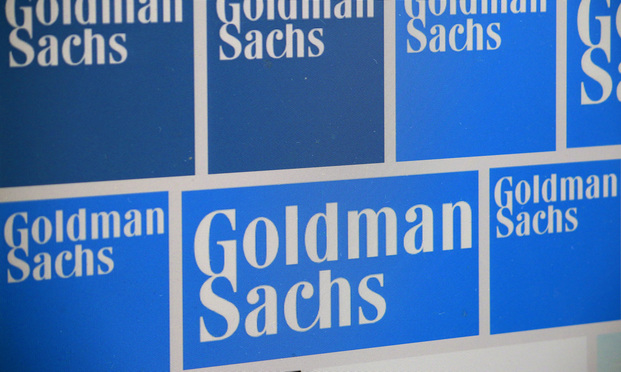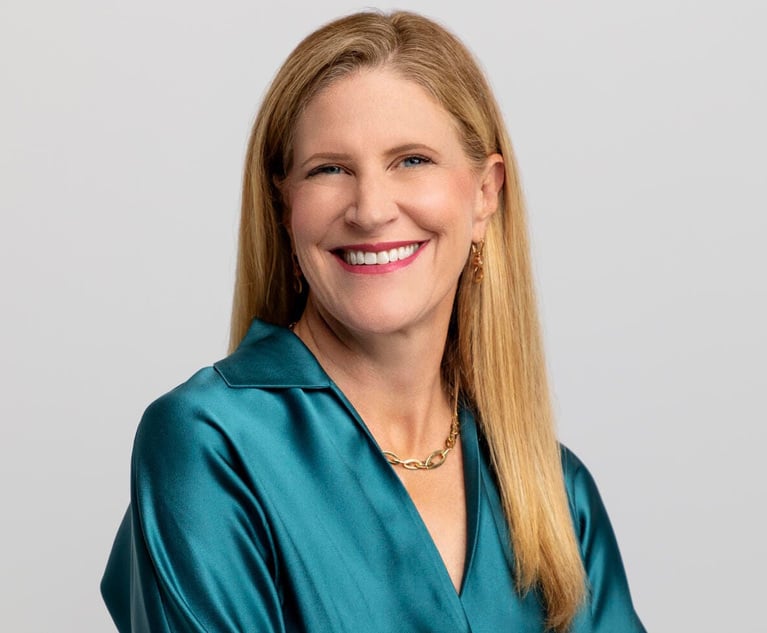How Goldman Sachs' Compliance Team Saved the Bank From Bribery Charges
"The firm's compliance personnel took appropriate steps to prevent the firm from participating in the transaction, and it is not being charged," regulators said in a statement.
April 17, 2020 at 06:09 PM
4 minute read
 Courtesy photo
Courtesy photo
Doing compliance is like flying a plane—one usually only hears about it when the plane crashes. But Goldman Sachs Group Inc. has a compliance team that steered it away from an alleged bribery scheme, and regulators noticed.
The U.S. Securities and Exchange Commission charged Asante Berko, a former executive of a bank subsidiary in the U.K., on April 13 with orchestrating a $3 million scheme to help a client win a government contract in Ghana. Berko has denied wrongdoing in a statement, and his attorney, Carl "Chip" Loewenson Jr. of Morrison & Foerster in New York, declined to comment on Friday.
The bank was not named as a defendant.
The commission's statement said, "The firm's compliance personnel took appropriate steps to prevent the firm from participating in the transaction and it is not being charged."
It was a lift for a compliance team that suffered a massive black eye last year from the bank's involvement in a $4.5 billion bribery and money-laundering scheme tied to Malaysia's sovereign wealth fund.
Nicole Sharp, head of Goldman Sachs corporate communications, said in a statement, "Goldman Sachs fully cooperated with the SEC's investigation." Sharp then reiterated what the commission said about the bank's compliance personnel taking "appropriate steps." She referred other questions about those steps to the detailed, 37-page complaint.
The document accuses Berko of two counts of violating the U.S. Foreign Corrupt Practices Act by arranging for his firm's client, Turkish energy company AKSA Enerji, to funnel bribe money to an intermediary consultant in Ghana. The money allegedly was used to pay off Ghanaian government officials to win a contract to build and operate an electrical power plant project.
The complaint, filed in U.S. District Court in Brooklyn, describes how Berko tried to hide his conduct from compliance staff by using his personal rather than work email account; by signing off on a memo that falsely stated the energy company had not paid any intermediaries or "politically exposed persons" in the deal; and by assisting the energy company's CEO in drafting false and misleading responses to questions posed by Goldman Sachs' compliance personnel.
Despite Berko's efforts, the compliance team conducted a review of his work emails and uncovered reference to the intermediary company, according to the complaint.
A team of legal and compliance people was assigned to further investigate and began questioning the energy company's executives. The executives at first "provided incomplete and inaccurate information," the complaint says, and in time refused to answer any questions on the topic.
At that point, Goldman Sachs terminated its involvement in the project in August 2016. A few months later Berko resigned from Goldman Sachs, effective March 2017, but he continued working with AKSA Enerji to close the deal with Ghana. He then became head of the state-owned Tema Oil Refinery in Ghana but resigned that position April 15 after being charged.
Between September 2016 and February 2017, AKSA paid Berko $2 million for his efforts in facilitating the bribery scheme, the complaint states.
According to the complaint, the scheme was to continue well into the future. The document says Berko helped draft a contract in which Enerji would pay the Ghana intermediary up to $42 million over five years if it won additional regulatory concessions for Enerji, including a tax exemption waiver and a government-backed letter of credit.
"Berko knew, or was reckless in not knowing, that for the energy company to obtain the specified regulatory benefits, the intermediary company would likely need to bribe government officials," the complaint states.
This content has been archived. It is available through our partners, LexisNexis® and Bloomberg Law.
To view this content, please continue to their sites.
Not a Lexis Subscriber?
Subscribe Now
Not a Bloomberg Law Subscriber?
Subscribe Now
NOT FOR REPRINT
© 2025 ALM Global, LLC, All Rights Reserved. Request academic re-use from www.copyright.com. All other uses, submit a request to [email protected]. For more information visit Asset & Logo Licensing.
You Might Like
View All
Wells Fargo and Bank of America Agree to Pay Combined $60 Million to Settle SEC Probe

Amex Latest Target as Regulators Scrutinize Whether Credit Card Issuers Deliver on Rewards Promises

Former Capital One Deputy GC Takes Legal Reins of AIG Spinoff

Class Certification, Cash-Sweep Cases Among Securities Litigation Trends to Watch in 2025
6 minute readLaw Firms Mentioned
Trending Stories
- 1Relaxing Penalties on Discovery Noncompliance Allows Criminal Cases to Get Decided on Merit
- 2Reviewing Judge Merchan's Unconditional Discharge
- 3With New Civil Jury Selection Rule, Litigants Should Carefully Weigh Waiver Risks
- 4Young Lawyers Become Old(er) Lawyers
- 5Caught In the In Between: A Legal Roadmap for the Sandwich Generation
Who Got The Work
J. Brugh Lower of Gibbons has entered an appearance for industrial equipment supplier Devco Corporation in a pending trademark infringement lawsuit. The suit, accusing the defendant of selling knock-off Graco products, was filed Dec. 18 in New Jersey District Court by Rivkin Radler on behalf of Graco Inc. and Graco Minnesota. The case, assigned to U.S. District Judge Zahid N. Quraishi, is 3:24-cv-11294, Graco Inc. et al v. Devco Corporation.
Who Got The Work
Rebecca Maller-Stein and Kent A. Yalowitz of Arnold & Porter Kaye Scholer have entered their appearances for Hanaco Venture Capital and its executives, Lior Prosor and David Frankel, in a pending securities lawsuit. The action, filed on Dec. 24 in New York Southern District Court by Zell, Aron & Co. on behalf of Goldeneye Advisors, accuses the defendants of negligently and fraudulently managing the plaintiff's $1 million investment. The case, assigned to U.S. District Judge Vernon S. Broderick, is 1:24-cv-09918, Goldeneye Advisors, LLC v. Hanaco Venture Capital, Ltd. et al.
Who Got The Work
Attorneys from A&O Shearman has stepped in as defense counsel for Toronto-Dominion Bank and other defendants in a pending securities class action. The suit, filed Dec. 11 in New York Southern District Court by Bleichmar Fonti & Auld, accuses the defendants of concealing the bank's 'pervasive' deficiencies in regards to its compliance with the Bank Secrecy Act and the quality of its anti-money laundering controls. The case, assigned to U.S. District Judge Arun Subramanian, is 1:24-cv-09445, Gonzalez v. The Toronto-Dominion Bank et al.
Who Got The Work
Crown Castle International, a Pennsylvania company providing shared communications infrastructure, has turned to Luke D. Wolf of Gordon Rees Scully Mansukhani to fend off a pending breach-of-contract lawsuit. The court action, filed Nov. 25 in Michigan Eastern District Court by Hooper Hathaway PC on behalf of The Town Residences LLC, accuses Crown Castle of failing to transfer approximately $30,000 in utility payments from T-Mobile in breach of a roof-top lease and assignment agreement. The case, assigned to U.S. District Judge Susan K. Declercq, is 2:24-cv-13131, The Town Residences LLC v. T-Mobile US, Inc. et al.
Who Got The Work
Wilfred P. Coronato and Daniel M. Schwartz of McCarter & English have stepped in as defense counsel to Electrolux Home Products Inc. in a pending product liability lawsuit. The court action, filed Nov. 26 in New York Eastern District Court by Poulos Lopiccolo PC and Nagel Rice LLP on behalf of David Stern, alleges that the defendant's refrigerators’ drawers and shelving repeatedly break and fall apart within months after purchase. The case, assigned to U.S. District Judge Joan M. Azrack, is 2:24-cv-08204, Stern v. Electrolux Home Products, Inc.
Featured Firms
Law Offices of Gary Martin Hays & Associates, P.C.
(470) 294-1674
Law Offices of Mark E. Salomone
(857) 444-6468
Smith & Hassler
(713) 739-1250






